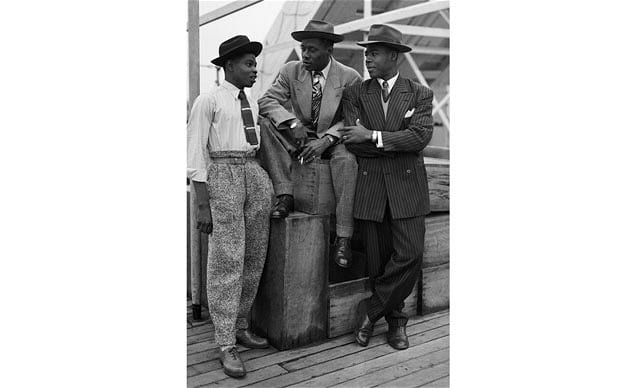Las Vegas/Sutherland Springs: Heightened Contradicktions
In our numbed reactions to constant mass shootings we’re pulled into tracking which ideological side has produced more homicidal maniacs. Our wish to absolve ourselves of responsibility hints that we’re feeling it in some way. The inkling of collective guilt we get when confronted by news of horrific violence isn’t right on exactly, but it shouldn’t be dismissed. It’s a complement to empathy. We wish we could do something. At the same time we unconsciously wonder at what we did. Unexamined and then repressed this anxiety may, in turn, devolve to a less than humane rush to determine a shooter’s race or politics—a habit of mind we’d all be better off ditching.
Fox and Foes
Imagine that you are writing a book which opens with your central character, “a powerful, 6’2″, finely dressed man of proud stature and handsome face,” leaping “like a lion” from a bus to save a woman from two knife-wielding thugs. Imagine that, within the next page, you have further described your protagonist as “a musician, and artist… quick in mind and step… (with) an unusual grace of movement… magnetic charm,” and a “creamy” skinned Afro-American, bearing a “noteworthy resemblance” to Clark Gable.
Imagine that your book is a first-person narrative, whose central character is describing himself.
Recognition Scene

What follows is an excerpt from the late Stuart Hall’s Familiar Stranger: A Life Between Two Islands (2017). First is posting it with the permission of Duke University press which holds the copyright.
General Kelly’s Devolution
General Kelly is back in the news. He yesterday announced that he has no reason to apologize to Congresswoman Wilson, also that Robert E, Lee was a hero, since “It was always loyalty to state first back in those days.” This last pronouncement would have startled both the 115, 000 Southern whites who enlisted in the Union Army and their 180,000 or so black comrades, the vast majority of them southern, who also bore arms for the United States.
Alpine Sisters on the Verge: Petra Volpe’s Dramatic Film About Swiss Suffragettes
Where did women not have the right to vote until 1971? Where did they still need their husbands’ permission to work in 1988? Where do political parties still advocate no punishment for rape in marriage? The Middle East? Africa? Central Asia? No: It’s Switzerland…
Notes From the Sisterarchy
Post-Weinstein Facebook posts by Laurie Stone…
Feasting on a Fiend
And so, the monster that is Harvey Weinstein has been banished, and soon, perhaps, he will be incarcerated. Troops of celebrities have rushed to condemn him, some claiming ignorance about his m.o. and nearly all expressing horror. It’s been a long time since the word disgusting was used by so many men who, if the tropes of pornography are to be believed, harbor fantasies very close to what Weinstein acted upon. I suspect that the conflict between what men and women feel sexually (which isn’t a single thing) and what we feel politically (which is) reflects a climate of anxiety amplified by social media and by newspapers and TV shows that have everything to gain from scandalizing. The result has been a two-edged sword. There’s a real struggle against sexual oppression and a more ambiguous fostering of uneasiness about sex that is potentially as oppressive as the situation it is meant to address.
Power Trips & A Lover’s Transport
“Everybody fucking knew” about Harvey Weinstein’s predatory side says screenwriter Scott Rosenberg in a self-lacerating post in which he called out complicit Hollywood. Rosenberg blamed himself and bigger players for their not-knowing stance toward the monstrous mogul. Rosenberg’s rant on the low motives that kept all of them on Weinstein’s team seemed spot on, but as I read him last night, I found myself resisting his larger claims for Weinstein’s cultural import:
Eminen and Trump: Fratricide in the White Imagination
The figure of Slim Shady haunts the moldering corridors of the Midwest. In every town you’ll meet them–tall, pale young men in hoodies on the margins of the mainstream economy. They roam the busted landscape of blue-collar America, enacting private sagas of self-destruction in search of some lost myth of unsullied masculinity.
The Shark Has Pretty Teeth Dear
I’m an inveterate watcher of ABC’s popular “Shark Tank.”